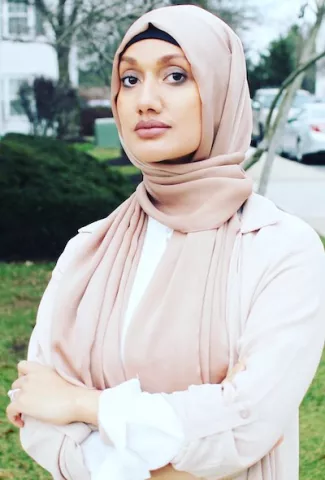Key Takeaways
49
46
Muslim students in the United States—from middle school through college and university—are experiencing harassment, discrimination, and bullying at scary rates, surveys show.
On college campuses, 49% of Muslim students experienced harassment or discrimination due to their Muslim identity, they told the Council on American–Islamic Relations-CA in 2024. More than one in three felt targeted by professors; more than half by their peers.
Among middle and high school Muslim students, 47 percent report feeling "unsafe, unwelcome, or uncomfortable" at school because of their identities. One in four say they've heard a teacher or other adult at school make offensive comments or act in a way offensive to Muslims. For students who wear hijabs, it's especially threatening: about a third say their hijab has been pulled off or touched in an offensive way.
This is what Islamophobia looks like—and it stems, at least in part, from a lack of awareness, understanding, and empathy among non-Muslim people, suggests Nazma Khan, the founder of World Hijab Day.
Since 2013, World Hijab Day has provided an opportunity for non-Muslims to support Muslims and share their experiences by simply wearing a hijab. This is not an act of cultural appropriation; it's an act of cultural appreciation, Khan notes.
"What if women from all walks of life, irrespective of their religion or faith, walk in my shoes by wearing the hijab for just one day?" says Khan. "Then perhaps these women will understand that it's just a piece of cloth we wear. Then perhaps these women can be our allies when somebody is bullied on a train."
Learn more about the who, when, where—and most importantly, the "why" behind World Hijab Day.

Who?
Non-Muslim women, including NEA members.
When and where?
February 1, in more than 150 countries.
How?
The simplest way for educators and students to participate in World Hijab Day—and show support for Muslim girls and women who are discriminated against for wearing a hijab—is to cover their hair with headscarf.
Other suggested activities in World Hijab Day's activity guide for schools and colleges include:
- Increase awareness through social media. Post your @WorldHijabDay selfies using the hashtags #HijabisUnsilenced & #WorldHijabDay.
- Work with your school or college to host an inclusivity workshop, a panel discussion, or guest speakers.
- Write individual notes of support to faculty, staff, parents, and students who wear hijabs.
Why?
When Khan was 11, in the 1990s, her parents brought their family to the United States, seeking a better life for Khan and her siblings. Taken in by relatives in the Bronx, the six of them slept in a spare bedroom, sharing a twin bed on the floor. "We had each other. We had faith," she recalls.
While Khan's father sold newspapers on the sidewalks of Bronx for a quarter each, Khan navigated its streets on her way to her new middle school. She was the only child in a hijab. "I saw my mother, my sisters, my grandmother, wearing the hijab and they looked so beautiful to me, like royalty. I wanted to look like them," she recalls.

On the street, people gawked. In school hallways, her classmates shoved her against lockers, even spit on her. They made fun of her accented English. One ripped off her hijab. "The last thing I want to tell my parents is that I'm being bullied. I don't want to make them sad," she says. "I don't want to disappoint them."
She persisted, eventually attending college in Manhattan. And then, on Sept. 11, 2001, al-Qaeda terrorists attacked, killing 3,000 people. "After 9-11, I'm a visible Muslim woman in New York City," she recalls. At best, people moved away from her. At worst, they moved toward her, threatening her. She managed to graduate, without attending the ceremony, and then waited—and waited—as her every job application went unanswered.
Khan started selling hijabs online, around 2009, because she didn't really have any other options. A former biology major, "I was a terrible busineswoman," she says. But she had the instinct to create a Facebook page for her business and suddenly, she was at the center of a growing community of Muslim hijabi women, sharing their stories of how wearing a hijab made them a target of violence and discrimination.
"I got this message from a 14-year-old girl in the United Kingdom who told me, 'I went to class today and this boy pulled off my hijab and spit gum in my hair,'" Khan recalls. "It hurt me. It really, really hurt me. It was like a flashback to my struggles in high school. That was a defining moment in my life. I was like, 'I need to help this girl, but how do I help this girl who lives across the world from me?'"
Today, World Hijab Day has been recognized by lawmakers in states as varied as Oklahoma and Michigan, and it has expanded to include inclusivity workshops that Khan offers to educators and parents.
"The whole goal is to dismantle Islamophobia," she says.
Religious Expression Guides
NEA offers toolkits that provide students, educators, and parents with information on legal protections around religious expression, so they can be their authentic selves, adhere to their beliefs, and be free from religious coercion at school. Check out the Religious Expression Toolkit for Students and the Religious Expression Toolkit for Educators.


